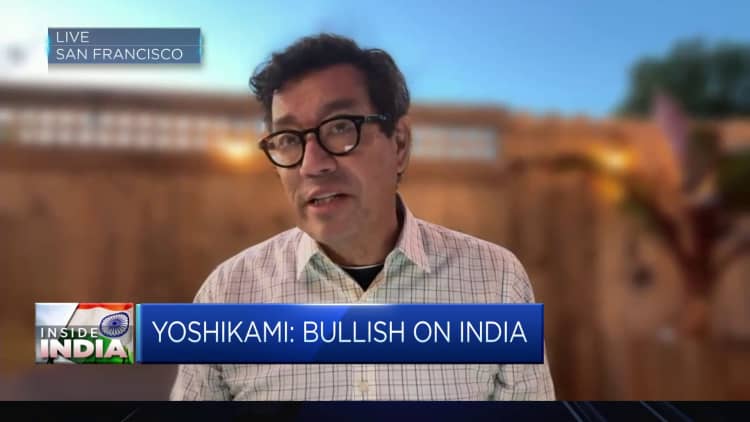India’s growth is set to power ahead. Analyst names sectors with the ‘best value’
Birds flying over the corridor of the Jama Masjid at sunrise in New Delhi on October 27, 2016.
Money Sharma | Afp | Getty Images
India’s growth is looking like a “bright spot” as the country’s outsourcing sector remains robust on top of an increasing trend of tech companies moving their manufacturing lines to the country, according to the CEO of Destination Wealth Management.
“India looks like a bright spot in particular because you’re seeing tech companies starting to move forward in terms of manufacturing in India,” said Michael Yoshikami of the wealth management firm, who said he’s expecting an economic growth of 5% to 6% in the next five years.
The International Monetary Fund recently released its forecast for India’s economy to expand by 5.9% in 2023.
A large part of this is driven by India’s outsourcing sector being on pace to keep its momentum, said the CEO.
Many companies are opting to outsource software development projects to India for quality at reasonable costs, according to Krina Mehta, a co-founder of U.S.-based offshore software development company Fortune Infosys.
The country’s “outsource phenomenon” is going to continue, Yoshikami said, attributing it to its assembly of technology schools and companies exercising cost control as a priority.

He said India’s labor costs are also well below many other countries, especially when compared to China’s rising wages.
“China used to be cheap outsource. It’s just not cheap outsource anymore,” Yoshikami said.
“I think you’re going to continue to see an outsource away from China and other countries, maybe Philippines and Vietnam … to India.”
To leverage on India’s burgeoning growth, Yoshikami picked the banking sector as one of the shining stars for international investors.
“I think that probably the best value right now is in [India’s] banks … if you look around the world, banks in general, have been struggling in the United States,” he said.
The U.S. banking crisis that erupted in March, triggered by the collapse of Silicon Valley Bank, continues to weigh on sentiment.
However, Yoshikami noted that the technology sector has made some recovery inroads, and won’t necessarily give banks the upper hand.
“I think they both hold promise … I certainly think they’re sort of a barbell approach.”
The barbell approach is an investment strategy that seeks to balance high-risk and no-risk assets by investing in both extremes, while avoiding middle-risk options.
“I wouldn’t layer all of your money in banks or all of your money in technology … I think that’s too much of a risky bet.”
For all the latest World News Click Here
For the latest news and updates, follow us on Google News.

